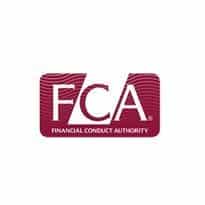ISoft4 ‘conspired to avoid catastrophe’
- 13 April 2012
Former senior directors of iSoft fiddled its accounts to avoid “potentially catastrophic” repercussions to its ability to win contracts and to their own fortunes, a court heard yesterday.
Prosecutors claim Patrick Cryne, Stephen Graham, Timothy Whiston, and John Whelan, conspired together to make statements, promises, or forecasts about iSoft which they knew to be misleading, false, or deceptive in the middle of the last decade.
Cryne is not standing trial alongside Graham, Whiston, and Whelan, having ‘become unwell’ since proceedings began against the four alleged conspirators.
But Southwark Crown Court was told the four men plotted to cover up the firm’s true position as the company faced a “make or break” period.
ISoft was formed in 1999 by Cryne, Graham and the now deceased Roger Dickens, and by 2004 was a FTSE250 company with market-owned shares in the region of £900m.
But Richard Latham QC, prosecuting, said that its revenues were far from secure. In 2003, iSoft was approached by Ireland’s South Eastern Health Board to provide a new IT system.
The contract was later broadened to an ‘all-Ireland national solution’, in a deal that the court heard would have represented 50% of iSoft’s half-yearly revenue, when it was eventually signed.
Mr Latham said: “With Ireland they were due to make a profit of £9.4m, but without Ireland they were going to make a loss of £11m.”
The prosecutor said that at the same time, iSoft was in talks to merge with fellow health IT firm Torex and hoped to secure future contract with the NHS in England – which was just embarking on the National Programme for IT in the NHS.
“Any sign of weakness and neither of these events was guaranteed to come to fruition,” he said.
“If the Irish contract failed – wow. ISoft would not just be saying ‘we did not do as well as we did last year’ it would be issuing a profit warning and making a significant loss.”
The prosecution’s case is that the four men misled investors about the financial health of the company when they claimed they had won a major contract to supply information systems to Irish hospitals before 30 April 2005.
It also says that they made other misleading statements about its accounts for three years, ending in 2006.
At the start of yesterday’s trial, Mr Latham said this allowed Cryne, the firm’a chief executive, and Graham, its director of operations, to become multi-millionaires.
Finance director Whiston and erstwhile group financial controller Whelan were also highly paid and expected to net annual bonus based on the company’s apparent success, jurors heard.
None of the four men have any connection with iSoft today. The company, based in Banbury, Oxfordshire, was sold to Australian software firm IBA Health after a takeover in October 2007.
It has since been sold to US company CSC and is now part of CSC’s healthcare group.
Each deny conspiracy to make misleading statements promises or forecasts, contrary to the Financial Services and Markets Act 2000 and section 1 of the Criminal Law Act. The trial continues.
Comments have been closed on this story to comply with the law on contempt of court. Comments will be re-opened when the trial has concluded.



